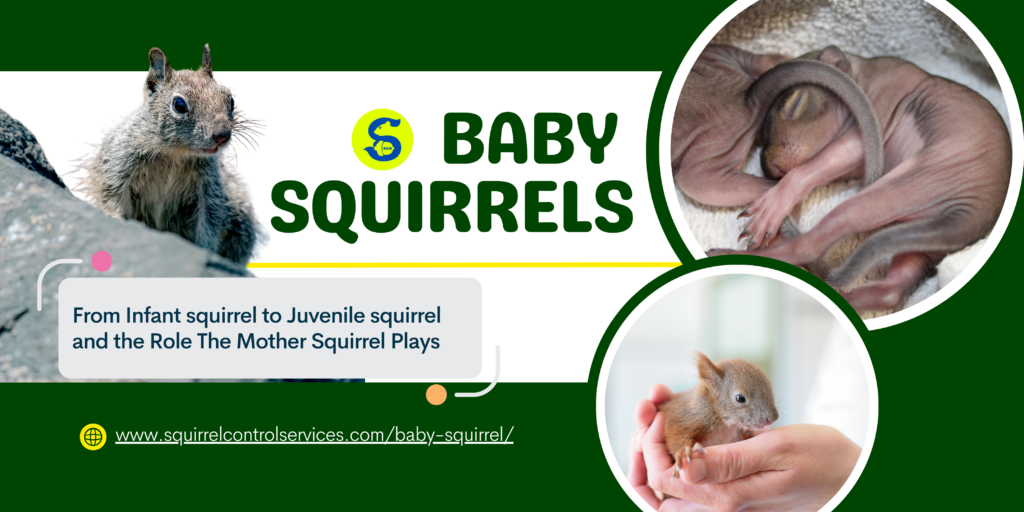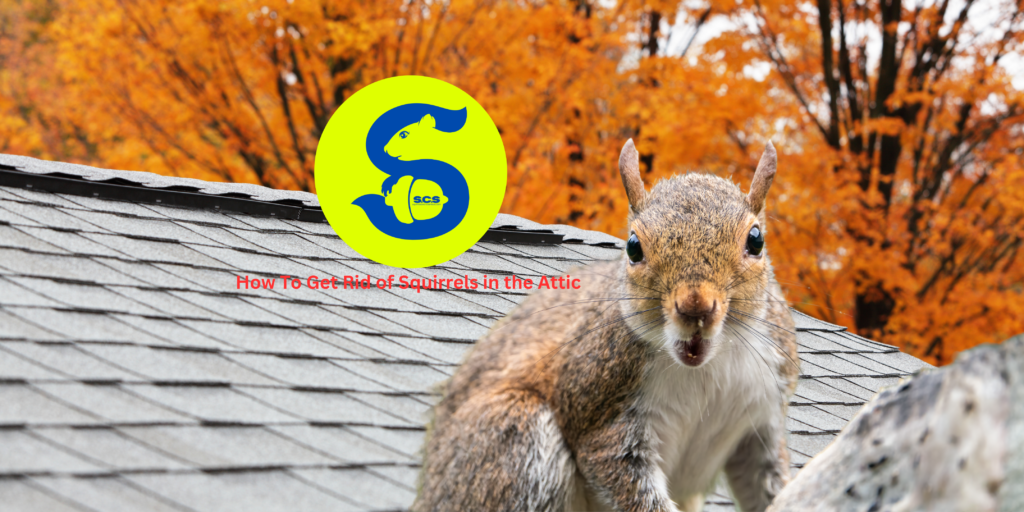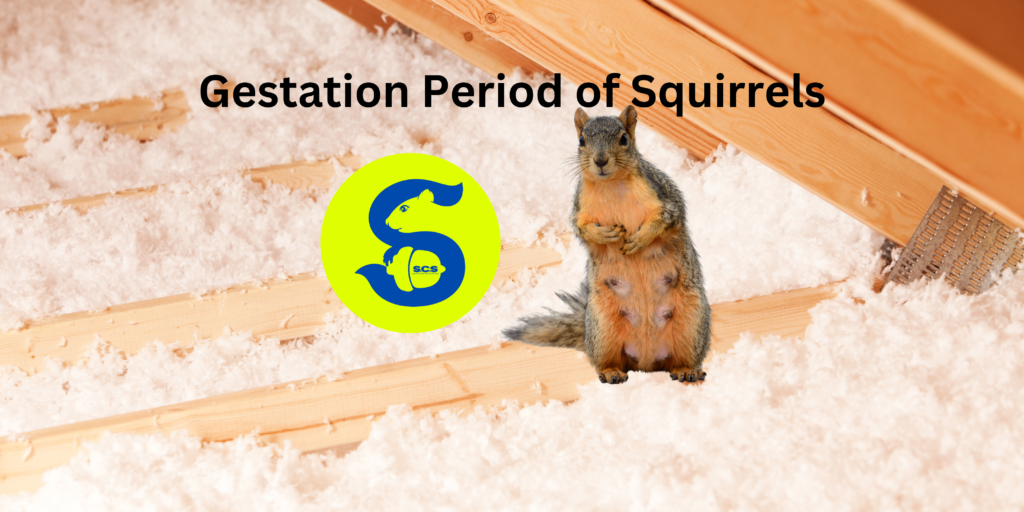How Long Do Squirrels Live? Lifespan Of Squirrels in 3 Stages

How Long Do Squirrels Live?
Lifespan Of Squirrels in 3 Stages
In the wild, most squirrels typically live between 5-10 years. When kept in captivity with proper care and protection from predators, they can survive up to 20 years.
Squirrels are fascinating creatures that captivate our attention with their agility and playful behaviour. Their life cycle is a testament to the wonders of nature, unfolding in three distinct stages: baby squirrels, juvenile squirrels, and adult squirrels. Each stage presents unique challenges and milestones contributing to their survival and development.
Stage 1: Baby Squirrels
Birth and Early Life
In their early stage, baby squirrels, also called kittens or pups, are born blind, deaf, and hairless, making them dependent on their mother for warmth, food, and safety. A female squirrel usually has a litter of two to eight kittens following a gestation period of about 44 days. Weighing around 10-15 grams at birth, baby squirrels stay in secure tree dens or well-built leaf nests, known as dreys, where the mother squirrel cares for them.


Development Milestones
During their first weeks, baby squirrels grow quickly. By about three weeks, they start developing fur, and at around four weeks, their eyes and ears open, giving them their first true sense of their surroundings. At six weeks, young squirrels begin to explore outside the nest, closely monitored by their mother for safety.
Weaning and Independence
Weaning begins when squirrel kittens are around eight to ten weeks old. During this period, the mother squirrel teaches them key survival skills, including finding food and identifying predators. By the end of weaning, the young squirrels become more independent but remain near the nest for safety and continued learning.
Stage 2: Young Squirrels
Learning and Exploration
As baby squirrels mature into juvenile squirrels, they grow more adventurous and curious. From about three months to one year, they focus on developing essential survival skills. During this stage, young squirrels explore their surroundings, practice climbing trees, and refine their jumping abilities, preparing for independent life.
Social Behavior and Interaction
Young squirrels often play with their siblings, which helps them build strength and coordination. These interactions also teach them social order and communication skills. Squirrels are vocal animals, using various sounds to communicate and to alert each other of nearby dangers.
Establishing Territory
In their juvenile phase, squirrels start claiming territory by marking it with scent from glands on their cheeks. This marking signals to other squirrels to respect their area. Establishing territory is important for reducing disputes and securing access to resources like food, shelter, and safe nesting spots.
Stage 3: Adult Squirrels
Maturity and Reproduction
Once squirrels reach adulthood, typically after one year, they attain sexual maturity and start reproducing. Female squirrels can produce up to two litters annually, influenced by food availability and environmental factors. Adult squirrels actively defend their territories and forage to sustain themselves and support their young.
Foraging and Food Storage
Foraging is essential for adult squirrels, as they gather and store foods like nuts, seeds, and fruits. They bury these items in multiple spots, a behaviour called caching, which helps them endure the winter when food is limited. Squirrels have a remarkable memory, allowing them to find these buried caches even months later.

Survival Strategies
Squirrels rely on several survival strategies to withstand seasonal challenges and secure essential resources. These strategies include foraging for food, caching supplies in various locations, and defending their territories from other animals. By storing food like nuts and seeds in multiple caches, squirrels prepare for times when resources are scarce, particularly during winter. Territorial defence helps them protect these food reserves and ensures access to safe nesting areas, all of which contribute to their survival in changing environments.
How Long Do Squirrels Live: Lifespan and Challenges
Different species of squirrels have varying lifespans, and their survival often depends on the species and environment. The lifespan of a squirrel in the wild is typically between 6 to 12 years, but many do not survive past their first year due to predation and environmental challenges. Young grey squirrels and other species must navigate threats from predators like hawks, owls, and domestic cats, as well as human activities such as hunting and habitat destruction. In urban settings, squirrels also face dangers from traffic and the loss of green spaces. However, with proper care in protected environments, squirrels can live much longer, especially in captivity where these challenges are minimized.
More Wildlife Species We Remove
Our nuisance wildlife control technicians have extensive experience with the removal of all wildlife.
- Bat removal
- Bird control
- Raccoon removal
- Skunk removal
- Red squirrels
- Wasp Nest Removal
Squirrel Species: Which Species of Squirrel Lives the Longest
Squirrels are intriguing members of the rodent family, showcasing a wide variety of species with unique traits and lifespans. This diverse group includes tree squirrels, burrowing ground squirrels, and even chipmunks, each exhibiting distinct behaviours and life cycles. Both young and adult squirrels encounter challenges like finding food and avoiding predators, which affect their life expectancy. Among tree squirrels, the eastern grey squirrel can live up to 12 years in the wild, while fox squirrels have an impressive lifespan of up to 18 years, particularly in captivity. This overview of different squirrel species helps highlight those with the longest lifespans, offering insights into their survival and life patterns.
How Long Do Tree Squirrels Live?
- Eastern Gray Squirrels: Typically live up to 12 years in the wild. Their survival is highly influenced by their environment and availability of food, especially in deciduous forests.
- Fox Squirrels: These fox squirrels usually live about 8 to 18 years. Their long life span is supported by their ability to thrive in urban parks and natural habitats.
- Red Squirrels: Often live for around 5 to 10 years in the wild. These squirrels, with their distinct reddish fur, can be found in both coniferous forests and mixed woodlands.
- Southern Flying Squirrels: Can live up to 5 to 6 years in the wild. Their gliding ability helps them avoid predators, extending their lifespan in forested areas.
- Northern Flying Squirrels: These squirrels have an average life span of about 4 to 6 years in the wild, often residing in tree cavities to avoid threats.
- Western Gray Squirrels: Generally live up to 7 to 8 years in the wild. These large, bushy-tailed squirrels are frequently seen in urban areas.
- Douglas Squirrels: Typically live around 5 to 7 years in the wild. Their resilience allows them to adapt to various climates, including mountainous regions.
- Abert’s Squirrels: Often live for about 7 to 8 years in the wild. Their unique tufted ears make them easily recognizable in their forest habitats.
- Arizona Gray Squirrels: Have a lifespan of approximately 8 to 9 years in the wild. These squirrels are skilled climbers, often found in rocky landscapes.
- Japanese Dwarf Flying Squirrels: Can live up to 5 to 7 years in the wild. Their small size and agility make them elusive in dense forests.
- African Giant Squirrels: Generally live up to 5 to 7 years in the wild. Their large size helps them dominate in their environment.
- Asiatic Striped Squirrels: Typically live around 4 to 6 years in the wild. These squirrels are commonly found in tropical regions, where food is abundant.
- Oriental Giant Squirrels: Often have a lifespan of 5 to 6 years in the wild. Their large build helps them avoid many natural predators.
- Neotropical Pygmy Squirrels: Usually live for about 2 to 3 years in the wild. Their small size makes them more vulnerable to predators.
- Pygmy Squirrels: Typically have a life expectancy of around 2 to 3 years in the wild, facing many challenges due to their size and limited habitat.

Squirrel Removal Cost
- Removal: One-Way Door, Trapping
- Repair: Shingles, Vents, Soffit
- Prevention: Reinforce Vulnerable Areas
How Long Do Ground Squirrels Live?
- California Ground Squirrels: Usually live around 6 to 7 years in the wild. These ground squirrels are known for their adaptability and can often be found in coniferous forests and grasslands.
- Richardson’s Ground Squirrels: Often have a lifespan of about 2 to 4 years. Predation and human interaction are major factors that affect their survival.
- Columbian Ground Squirrels: Typically live up to 6 years in the wild. These squirrels are often seen in deciduous forests, where they burrow for shelter.
- European Ground Squirrels: Generally live for 7 to 8 years in the wild. They are more commonly found in urban areas where food is more abundant.
- Arctic Ground Squirrels: Often live around 8 to 10 years in the wild. Their long life span is supported by their ability to hibernate in extreme climates.
- Rock Squirrels: Usually have a lifespan of about 6 to 7 years in the wild. They are adept climbers and are often found near rocky terrain.
- Thirteen-lined Ground Squirrels: Typically live up to 5 years in the wild. Their short lifespan is influenced by predation and environmental conditions.
- Belding’s Ground Squirrels: Often have a lifespan of around 3 to 4 years in the wild. They are known for their complex social behaviour in colonies.
- Asian Rock Squirrels: Generally live up to 3 to 4 years in the wild. Their relatively short life expectancy is impacted by habitat loss and limited food sources.

How Long Do Chipmunks Live In The Wild?
- Eastern Chipmunks: Usually live up to 3 years in the wild. Their short life expectancy is influenced by predators and environmental factors.
- Siberian Chipmunks: Can live up to 6 years in the wild. This longer average lifespan is due to their adaptation to colder climates.
- Least Chipmunks: Typically live around 2 to 3 years in the wild. They often face challenges such as finding food and avoiding predators.
- Western Chipmunks: Generally live up to 2 to 3 years in the wild. Human interaction and habitat loss can shorten their lifespan even further.
Conclusion
The life of a squirrel is a remarkable journey of growth, learning, and adaptation, shaped by several factors. From the vulnerable days of newborn squirrels nestled in tree cavities to the adventurous juvenile stage and the resourceful adulthood in deciduous forests or urban areas, each phase is marked by significant milestones and challenges. Whether it’s a fox squirrel or an eastern gray squirrel, their ability to thrive in various environments, including urban parks and coniferous forests, is a testament to their resilience. Understanding these stages not only highlights the ingenuity of wild squirrels but also underscores the intricate balance of nature that supports their survival, especially when facing human interaction and threats like electrical wires.









